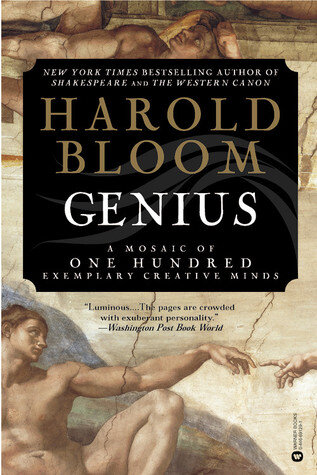
Presenting The 2019 “Griftie” Awards
We live in an age of great rip-off artists and hucksters. Today Current Affairs honors their achievements.
In response to a series of extraordinary grifts—from Elizabeth Holmes’s botched blood startup to fake heiress Anna Delvey’s skipped hotel bills to Anthony Enrique Gignac (who pretended and may actually believe himself to be a Saudi prince named Khalid bin al-Saud) the New Yorker declared May 2018 the beginning of “grifter season.” But much like Hot Girl Summer, grifter season never ends. 2019 bore witness to grifts possibly even more brazen and shameless than the previous year’s, scams that either remain operational or have safely combusted some distance from their creators, leaving them smiling, unscathed, and still rich as sin. In their honor, Current Affairs presents to you for the first time—and probably not the last—our new annual tradition: the Griftie Awards.
Griftie winners were chosen by the distinguished Academy of Confidence Arts and Scammer Sciences. Our sincerest thanks to the Academy for their dedication in identifying these charlatans and outright monsters. We’ll see you at the afterparties.
Golden Parachute Award: Adam Neumann of WeWork
Put your hands together for Adam Neumann, one of the more talented grifters of all time. Picture the Fyre Festival guy, except charming and successful (WeWork even featured their own version of a summer music festival for employees.) Neumann, unlike poor Billy McFarland, is set to receive a payout of at least $1.7 billion as his company plummets into the abyss.
Neumann’s remarkable ability to scam investors—and get away with it—seems to have fed an outsized sense of his own importance. A former WeWork executive said “‘His sense of himself is beyond human.” In fact, next to Neumann, every Silicon Valley entrepreneur with a soaring plan to disrupt an industry and save the world is but an idiot baby with imposter syndrome. Neumann believed WeWork could bring peace on earth and save the world’s refugees, claiming “I need to have the biggest valuation I can, because when countries are shooting at each other, I want them to come to me.” After the assassination of Jamaal Khashoggi, he stated that Mohamed bin Salman just needed the right mentor (naturally, this would be Neumann himself). He wanted “to be elected president of the world, live forever, and become humanity’s first trillionaire” and he insisted that “WeWork existed to ‘elevate the world’s consciousness.’” Where Elizabeth Holmes is facing criminal charges, Neumann’s paltry $1.7 billion payout may rise as high as $2 billion. Neumann may have been banished from WeWork, but he’s likely to reappear in some form—maybe, as a longtime friend of Jared Kushner, with a job in the Trump administration, which is basically grifter heaven.
Saddest: Symone Sanders
Oh, Symone. Once upon a time, she was the energetic and delightful National Press Secretary for the 2016 Bernie Sanders campaign. Abruptly quitting the campaign in June 2016—she never gave a reason, but by that point Hillary Clinton had effectively clinched the nomination—Symone Sanders signed onto the Joe Biden campaign in 2019. Every day, she runs cover for Biden’s lapses, lies, and creepy touches. “Obviously when Vice President Biden said we need to punch violence against women, he meant, uh….” This is her job now. This is her life. This is it. Symone, we just hope you’re taking the Biden campaign for all they’ve got.
Emptiest: Mayor Pete
Imagine the following scenario: You’re a little boy, and you desperately want to be president. Nothing in the world, not joy or love or the warmth of human kindness will ever mean as much to you as your childhood dream of virtually unchecked power. All your life is given into the service of power: your power. You go to Harvard. You learn bits and bobs of multiple languages so you can claim fluency. You “serve” in some mysterious form in Afghanistan. You join McKinsey and create spreadsheets that get people fired. You become mayor. You do some “smart” pothole maintenance. You bulldoze black residents’ houses. You do your photo-ops. You make your connections. You build an image. You eat disgusting food at the Iowa State Fair. You condescend to teenage activists. You smile painfully when fellow candidates mock your billionaire donor parties. You plot terrible vengeance.
Now imagine you’ve done all this, but it’s too late, it’s 2020, and nobody besides some gasbladder Democratic donors and “electability”-minded Iowans gives a fuck, you’re just a flavor of the month, and your numbers will tank at any moment, and even if they didn’t it wouldn’t matter, because although you could theoretically win the nomination you’ll never beat Trump, since Black voters don’t trust you and no Democrat can win the presidency without them, and you know this, and you don’t care, because frankly you would rather lose than give anyone else the chance to win, in fact you don’t care if the entire planet burns down, you’ll still make noises about cutting emissions by 2050 as long as it doesn’t alienate business elites because evenhandedness and working together and bipartisanship and blah blah blah, words words words, it’s so frustrating that it hasn’t yet been handed to you, this power you want, that you’ve earned, that you know you can’t ever have, that you’ll give and say anything to have, because you’re a grifter and the subject of your grift is yourself, your carefully crafted mask, the bespoke artisanal Pier 1 persona you’re desperate to sell and not enough people are ever going to buy.
Laziest: Blippi
At Current Affairs, we salute laziness. This is why we initially cast a critical eye on Blippi, the preschool-favorite YouTube successor to Uncle Nutsy’s Clubhouse. His show seems like an awful lot of effort, but it’s paid off: Blippi has over 6 million followers and upwards of 4 billion total views. He has his own plushie, offers personalized videos for a fee, and recently launched a touring live show.
Here’s the rub: Blippi hired someone to play him at those live shows, a fact which he did not highlight in the press release. Parents are mad, as if their toddlers can distinguish between two different men in multicolored suspenders. The thing is, what Blippi’s doing isn’t laziness at all: It’s clearly desperation. Keeping a massive media empire afloat isn’t cheap or easy, and undoubtedly Blippi is stretched beyond his capacities. So while we are giving the award to Blippi, the truly lazy ones here are the parents, who refuse to take the time to really imagine other people’s lives and feel entitled to exactly what they paid for.
Griftspeed, Blippi.
Sheer Chutzpah Award: Greg Yeutter, Bedtime Bulb
Everyone knows the gag by now: A Silicon Valley luminary announces they have invented a revolutionary new concept, which turns out to be a bus, the subway, or a blender. But take off your SmartHats and bend your padded SensoKnees for the guy who invented the lightbulb. To be clear, this isn’t just any lightbulb: It changes color. Specifically, it changes to colors that help you sleep. It’s unclear whether or not it changes to the one color that helps people sleep the best (off). But what’s absolutely clear is that you simply must download the accompanying app that will help the lightbulb monitor your sleep. How else will your boss be able to diagnose your weariness and dock your pay accordingly?
Best: Dr. Ruja Ignatova of OneCoin
Folks, Dr. Ruja Ignatova isn’t present tonight to claim her award, but if she were, she’d stride onstage in plum-colored lipstick and a glittering gown. She would extol the virtues of her cryptocurrency OneCoin, the mighty “Bitcoin killer.” She might namedrop McKinsey, her former employer, and Oxford University, her former college. But unfortunately, she can’t be with us tonight.
And that’s because she got away with it.
The legendary cryptoqueen vanished somewhere in Europe in October 2017. Her company remains eligible for the 2019 Grifties because OneCoin is still operational, even though Dr. Ruja ditched the enterprise two years ago and her successor—her brother Konstantin—pled guilty in November to fraud and money-laundering. You see, OneCoin has the remarkable honor of being even more of a scam than other cryptocurrencies. For one, it didn’t actually use blockchain. For another, it was an obvious multi-level marketing scheme. As the BBC reports:
Dr. Ruja’s genius was to recognise that established MLM sellers with huge downlines were the perfect vehicle to market her fake coin—a plan the FBI says she privately referred to as “the bitch of Wall Street, meets MLM”. This was the secret of OneCoin’s success. It wasn’t just a fake cryptocurrency, it was an old-fashioned pyramid scheme, with the fake coin as its “product”. No wonder it spread like wildfire.
Just how much money did OneCoin steal? At least $4 billion, and probably north of $15.8 billion, especially because, as we said above, the company is somehow still operational. “In the final summation, it seems entirely plausible that OneCoin will have stolen more than the $19.4 billion lost by Bernie Madoff’s victims, making it the largest financial scam ever,” reports Fortune magazine. Before celebrating Dr. Ruja’s scam genius, however, it’s important to note that many of her victims were poor and middle-class people in Uganda, India, the U.K., and many other countries worldwide. She is almost undoubtedly swanning around Europe—Frankfurt or Athens, or a yacht in the Mediterranean—possibly unrecognizable due to expensive plastic surgery while innocent people lost their life savings. Why did they trust Dr. Ruja? Because of her glittering gowns, and her Ph.D., and McKinsey, and Oxford. One victim described watching a speech by Dr. Ruja, presented at a conference sponsored by the Economist. “‘That ticked a box,” said the victim. “The power of the woman—well done! I felt proud of her.’” Death to the Economist.
Worst: Renee Bach
Not all grifts are fun. Arguably, none of them are truly fun, unless very rich people are getting bilked, and even then it isn’t nearly as satisfying as taxing away their wealth. Grifts exist in the gaps in capitalism, and embody perhaps its purest expression: exploitation in service of a lie, whether it’s a product you don’t need, a job you secretly hate, or a fantasy of massive wealth to come. Or, in the case of Renee Bach, the chance to play hero on the bodies of sick Ugandan children. Bach, a missionary with no medical training, was able to pretend to be a qualified medical professional for five years because she inhabited a role that people choose to believe in, and which a large network of NGOs has been set up to enforce: the compassionate white savior with appropriate credentials that don’t need to be checked, who can post goopy stories of her own heroism in poor benighted Africa while killing 10-20 percent of her patients. Bach is eligible for the 2019 Grifties because while her rampage took place in 2010-2015, she is only being prosecuted in a civil suit in 2019—and just in Uganda, not in the United States or an international court. Most grifts are awful, and most grifters get away with it.
Most Persistent: Elon Musk
Not all grifters believe their own bullshit. Some are certainly conscious of it: others, like Elizabeth Holmes, are probably aware that their product is a lie and they’re deceiving investors, but they think if they can just get a little more funding they can make it work, the science will magically appear, and they’ll be saved.
Elon Musk, however, appears to believe his own bullshit. It’s difficult to blame him: After all, he’s been remarkably successful. His technological prognostications have been chronicled since the early 2000s. He’s been compared to Tesla and Edison and Tony Stark. He’s made a line of expensive electric cars that only sometimes blow up, built by exploited workers unable to unionize. Sure, he’s lost millions of dollars via a few stoned tweets, and falsely accused a cave diver who rescued children of being a pedophile, but surely these are mere slip-ups, the faults of an uncontained and uncontrollable genius. Surely, he’ll get us to Mars. Surely, he’ll build a tunnel that will revolutionize public transportation—ok, that didn’t work, but maybe he’ll revolutionize private transportation—ok, maybe not that either. Surely, he’ll build us a truck that has both a coat of paint and shatter-proof windows. Surely, something about him is legitimate. Maybe he’s not a Tesla, or an Edison, except in the sense of exploiting people. Maybe the comparisons to Tony Stark were just shameless, obvious co-promotion. Maybe the person he’s really like, as per his latest hagiographer Tom Chiarella, is Mark Twain. Is it because Musk, like Twain, isn’t really that funny? No, says Chiarella. It’s because Musk, like Twain, thinks big thoughts.
We should do this, he said of the hyperloop and its tunnels. And then, in a real Mark Twain moment, Elon Musk, in the fashion of Tom Sawyer when whitewashing the fence, open-sourced the hyperloop project, and challenged the works, essentially tricking his friends into picking up the paintbrush. It is trundling forward, too. Meanwhile, said Elon Musk, let’s go to Mars!
There you have it: Musk is like Tom Sawyer, the grifter who famously tricked people into painting a fence for him. And if you’re still painting his fence for him, hoping you too will be swept along on the rocket to Mars, you’re a fucking idiot.
Least Surprising: Jordan and Mikhaila Peterson
What’s “Thinkspot”? Is it:
- The hot new thing out of Silicon Valley: a vaguely culturally-appropriative dot you’re supposed to put on your forehead to cure all your bad brainwaves.
- An entrepreneur’s club, basically a mashup of WeWork and that exclusive “black card” Billy McFarland used to hawk before Fyre Festival.
- A vibrator for sapiosexuals.
- An unused and unusable Patreon knockoff intended for the Intellectual Dark Web.
If you guessed 4, congratulations! You have correctly identified the single least interesting thing ever invented. After Patreon finally cracked down on white supremacists in 2018, the outraged Jordan Peterson—the king of free speech—announced that he and his brave truth-tellers (who all, incidentally, tell the same truth about the superiority of white men who are nonetheless endangered by college feminists, BLM activists, and transgender people who just want to use a fucking bathroom) would begin a social media enterprise of their very own. It would be a truly heroic one-of-a-kind venture, a lone outpost of reason and freedom against the chaos. To meaningfully participate it costs $2.50 a month baseline, and should you want to access premium content, oof buddy. Jordan Peterson’s output is of course the most expensive ($240 a year). “Indeed,” writes John Semley at the Guardian, “Thinkspot feels very much like a pay-to-play Jordan Peterson fan site.” But hey, it’s more than just Peterson: If you sign up for Thinkspot and fork over enough cash, you can also get access to his daughter’s posts, in which she extols the virtues of an all-meat diet that she almost certainly doesn’t follow because it would be hell on the intestines. The elder Peterson once claimed that the carnivore diet cured his depression, and even though he recently checked into rehab for complications due to anti-depressant withdrawal his daughter is still hawking her “Lion Diet.” You too can join the Lion Club for the low, low price of $680 a year and your sense of self-preservation.

In Memoriam: Harold Bloom
Oh, Harold. Sometimes, he claimed he could read 500 pages an hour. At other times, that claim ballooned to 1,000 pages. It doesn’t matter what he said, however, because he was lying, that is not a thing people can do, nobody in the entire world can just flip through a book and meaningfully absorb the contents. Bloom also said he could recite a great deal of poetry and Shakespeare by heart, whatever you might wish to hear. Of course, if you were to recite a few lines of an obscure Yeats poem, and asked him to complete the rest, he might say “Yes, I can finish that one, but I don’t like it.” Could it be that, like many educated people, he could simply recite some well-known verses? I’ve memorized three or four Yeats poems myself—it’s not really a big deal. Lots of people can recite the balcony scene from Romeo and Juliet. (Try it. You probably know the first few lines).
“Excuse me: how dare you. First of all, don’t you know that Harold Bloom was a very respected Ivy League professor? Don’t you know he wrote many important books?”
Thank you, I do know. In fact, he wrote one book called Jesus and Yahweh: The Names Divine, in which the cover text was written in gold and Bloom’s own name, in white, was thoughtfully tucked in just after Yahweh’s. This was allowed.

Maybe you think this is just one cherry-picked example! You would be wrong.


Ultimately, it doesn’t matter, as nothing about Harold Bloom matters. For decades, he could do no wrong. His was the definitive voice; his editions were the definitive versions of every classic text. When Naomi Wolf claimed that he sexually harassed her, it was his opinion that was believed, and her voice that was suppressed for decades. His credentials and his much-vaunted genius always mattered more than the events that actually occurred, then what was humanly possible or even particularly likely.
O what of that, O what of that
What is there left to say?
Nonetheless, let’s pour one out for Harold Bloom, who lived rich, unbothered, and unmasked to the very end.




